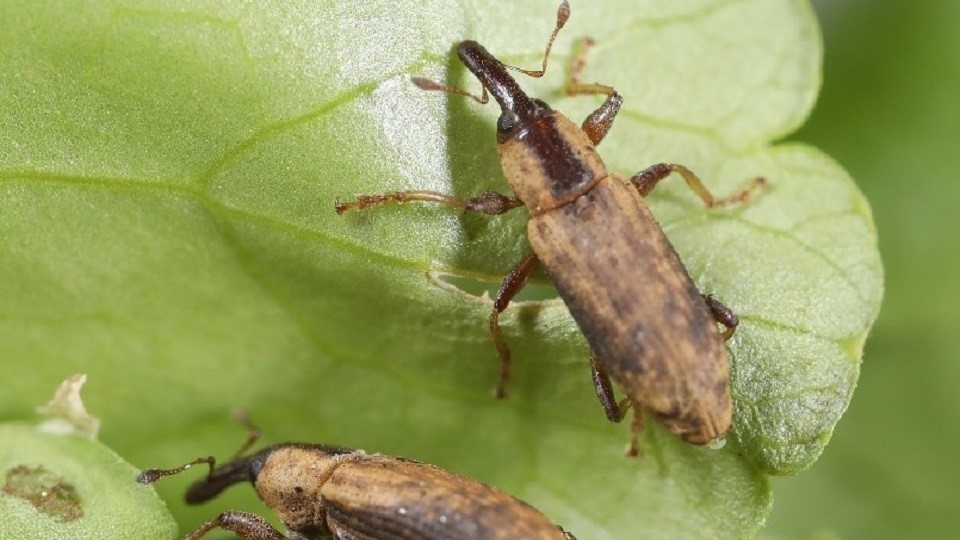A pond in Barnsley has become the latest site to test a new approach to tackle one of the country’s most prolific and damaging invasive aquatic plants.
The release of around 200 floating pennywort weevils into a large pond aims to tackle floating pennywort – one of the most invasive non-native aquatic plants first introduced to Britain as an ornamental pond plant in the 1990’s.
The weevils control the plant in two ways. Adults eat its leaves as well as laying eggs in the stem of the plant. After hatching the caterpillars mine the stems, causing mass collapse of the plant.
In the wild, floating pennywort rapidly forms dense floating mats across still or slow-flowing waterbodies. These mats crowd out other plant species, block light and impact on the aquatic ecosystem.
They are also a nuisance for angling, paddling and sailing and, in areas of very heavy infestation, can impede drainage and potentially increase flood risk.
In Yorkshire, floating pennywort affects numerous canals and rivers, including the River Calder, the Calder & Hebble Navigation and the River Don.
Conventional methods of controlling floating pennywort involve the application of chemicals (glyphosate) or physical removal using boats or volunteers. While this can minimise the impact of the plant, the pennywort is rarely cleared completely and often returns year after year. It is also difficult to treat pennywort when it grows amongst native vegetation.
The insect was approved as a biocontrol for release into the wild in England, in autumn 2021. This follows a decade of safety and efficacy testing by CABI who breed the insects, native to Argentina, in the UK.
Impact will be monitored
The impact of the weevil at the Barnsley site, owned by Barnsley Metropolitan Council, will be monitored by CABI for the first 12 months, working closely with Yorkshire Water and the Environment Agency.
If successful, it is hoped that this biocontrol agent will contribute to the national strategic approach to floating pennywort management, providing a long-term sustainable solution whilst mitigating the impacts of this highly invasive weed.
Andy Virtue, Biodiversity Advisor for the Environment Agency said:
“We have been working in partnership for years to try to keep this highly invasive plant species under control. While we have managed to minimise the spread of floating pennywort in Yorkshire, there are certain locations where we really struggle to control it.
“That is where this project could make a real difference – we hope the introduction of the weevil will provide a new way of tackling this invasive plant and help minimise its impact on our watercourses.”
Djami Djeddour from CABI said:
“These weevil releases are the culmination of a decade of research by CABI, together with South American collaborators in the native range of floating pennywort, to identify the safest and most damaging natural control for this pernicious weed.
“We’re very pleased to be working in partnership in Yorkshire to try to establish weevil populations and bring floating pennywort under long term control.”
Dr Steph Bradbeer from Yorkshire Water adds:
“Working in partnership is so important for tackling invasive non-native species across Yorkshire, which pose a risk to the environment and wildlife. One of these invasive species is floating pennywort, which if unchecked, can grow up to 20cm a day and cause significant problems in slow-flowing watercourses and impact draining systems.
“This collaborative project to release the floating pennywort biocontrol at a site in Barnsley is very exciting and we hope the release of these specialist weevils will provide a way of managing floating pennywort.”



